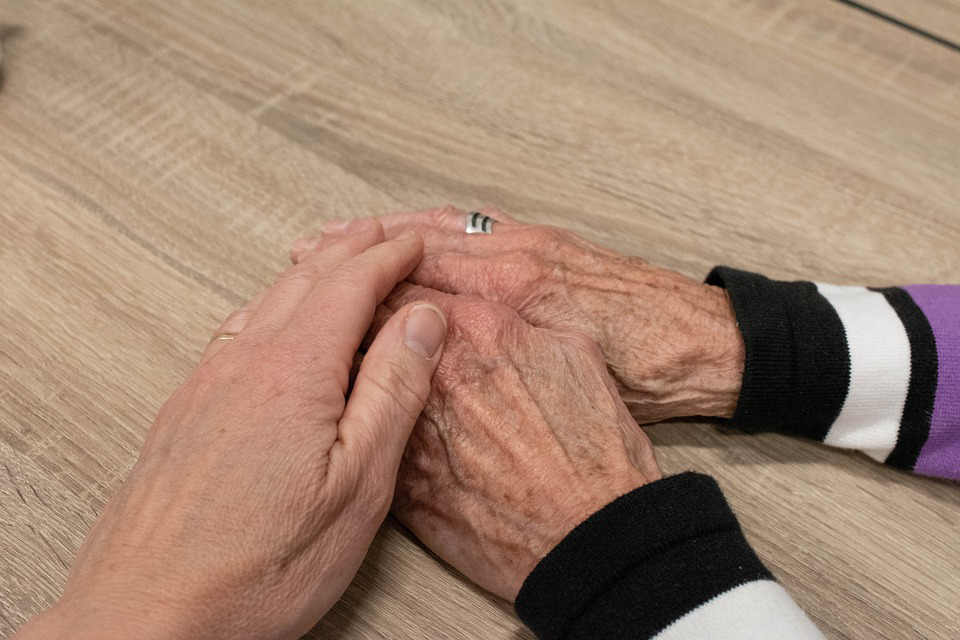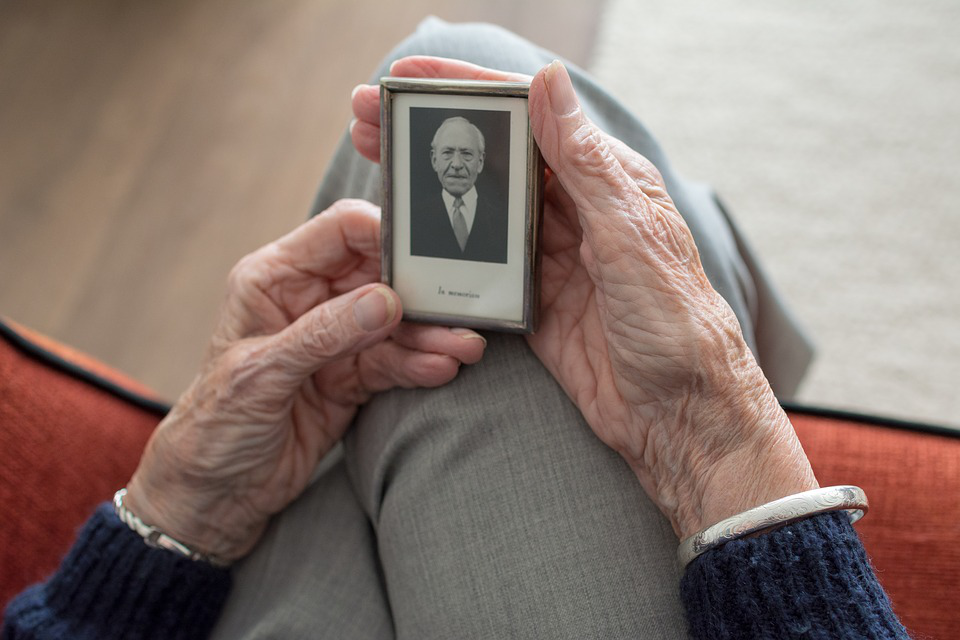Communication in the Early Stages of Dementia
Imagine losing all memory of faces you’ve grew old and struggling to recall names that were there in each prayer; dementia is indeed as debilitating and tragic a disease as it can be.
Dementia doesn’t only affect the person it happens to but also their loved ones and family members. The agony of living without any memory of your own flesh and blood is as great for the sufferer as for those who hold them dear. It’s emotionally taxing to not only live with this disease but also communicate in the early stages of dementia.
Early Trauma
Being diagnosed with dementia is a life-changing moments. Learning about this disease first-hand in the form of a diagnosis can be disturbing for an individual. The initial response is worry and confusion. Most anecdotes suggested that they were more affected by people’s reactions to their condition than the disease itself. They have complained how people quit making meaningful conversations with them, considering them intellectually challenged. They feel hurt by the way people start treating them, which adds to the early trauma of the diagnosis.
Drop Expectations
The burden of expectations strains the quality of conversations with a person with dementia the most. Expectations can work both ways: expect communication to be the same as old or expect to be drastically different with dementia. It’s more helpful to be flexible about communication is now going to be. Pick cues on the go and keep the conversation going spontaneously. Be open to new ideas or new ways of communicating. Take interest in how messages are transmitted and received. This will help adapt to the newer forms of communication. Most importantly, don’t trivialize the person’s ability to communicate at all because of their disease.
Company Over Communication

Conversations become stressful if they’re perceived as a performance metric. Try not setting any utilitarian goals while talking to someone with dementia. The purpose of communication shouldn’t then be to exchange maximum information or to attain maximum comprehension. Conversations should revolve around the notion of being with rather than talking about. Communication must primarily strengthen relationships and what could be a better way than communicating for the sake of company. Focus on being with them, rather than wanting them to be or talk a certain way. This is a person-centered psychotherapy technique introduced by Carl R. Rogers who showed how to enjoy someone’s company unconditionally.
At AvantGarde Senior Living and Memory Care, we welcomeelders with dementia and provide them the care they need. We provide luxurious senior living homes with a range of amenities including memory care to help them lead normal lives. If you’re looking for a comfortable place for assisted living for a parent or elder in Van Nuys, CA, we’re here to care for them.
Is Dementia a Normal Part of Aging?
As our body ages, it undergoes several changes which are a normal part of the aging process. Elders experience some variations in their cognitive abilities. They include slowed thinking, inability to focus, snappy attention span and retaining information. Elders also find it hard to manage multiple tasks at once and are often at a loss of words.
Research has shown that the hippocampal, frontal and temporal lobes in the brain deteriorate with age. Since these regions are responsible for all thinking-related function, memory also suffers with age. Although the age factor plays a major role in cognitive functioning, it’s not normal for dementia to be part of the natural process.
Normal Aging vs. Dementia
Most normal outcomes of aging affect the speed and span of thinking but a healthy elder is not naturally bound to suffer from dementia. For instance, slowed responses and shorter attention spans are normal for elders but dementia isn’t. The healthy process of aging impacts thinking abilities very subtly so as to ease the individual into the changing state of the mind.
But abnormal aging impacts cognition much more severely. You may encounter problems like inability to navigate, solve ordinary problems, express something verbally, or forget rapidly. But dementia is a more aggravated version of memory loss because you may forget personal details like names or faces of family members. You may stutter while speaking because of a lost train of thought or lack of words. But most importantly a person suffering from dementia doesn’t recognize the problem themselves; only their caretakers do.

Abnormal Aging: Mild Cognitive Impairment vs. Dementia
Mild Cognitive Impairment (MCI) and dementia are medical conditions that indicate that the damage is greater than expected. However, both–MCI and dementia–are at different stages on the spectrum from normalcy to dementia. MCI doesn’t affect the ability to carry out routine tasks like driving or cooking whereas dementia will disrupt everyday functioning of an aging adult. While these two terms only describe the severity of the problem, the causes are still undefined and various. Dementia can be a result of Alzheimer’s, Lewy body disease, vascular disease or frontotemporal degeneration.
Symptoms
- Changes in diet/eating habits
- Getting lost in familiar places
- Forgetfulness of recent events
- Imbalance causing trips and falls
- Personality changes
- Repetitive questioning/confusion
- Impaired planning and organizational skills
- Affected hygiene
- Odd or inappropriate behaviors
- Increased apathy
- Changes in language and ability to comprehend
At AvantGarde Senior Living and Memory Care, we offer elders with dementia the care they need. We provide luxurious senior living homes with a range of amenities including memory care for elders suffering from dementia. If you’re looking for a comfortable place for assisted livingfor a loved one in Van Nuys, CA, we’re here to provide for you.
The Many Benefits of Meditation for the Elderly
Wisdom, like good wine, only gets better with time.
But after a lifetime spent gathering wisdom from various life experiences, there’s a need for restoring lost energy. Old age can be unimaginably harsh for elders who have to cope with weak bones and lost muscles. With every inch in the body aching with age and weakness, they need to have mental peace at least to get through life. Meditation is an excellent way to relax the mind and detox negativities from your system.
Here are many benefits of meditation in old age.
Improves Condition With Alzheimer’s
The onset of Alzheimer’s in old age are significantly high. Almost one third Americans who are above the age of 85 suffer from Alzheimer’s disease. This makes Alzheimer’s a major cause of concern for the elderly. Since it’s a progressive disease, dementia and other symptoms related to it worsen with age. It can have debilitating side-effects like raging emotions and memory loss. However, studies have shown that breathing exercises and mindfulness through meditation can slow the pace of this disease. It is also known to help with mental conditions like depression, anxiety and stress that are experienced alongside dementia.
Improves Digestion
With weaker limbs and a sedentary lifestyle, elders often complain about digestive problems. It’s true; the digestive system can suffer greatly if there’s no physical activity. Even with it, diet and age can have an adverse impact on your digestion. Luckily, there’s a way to combat it through meditation. The deep breathing exercises included in meditation help revive the blood circulation that oxygenates blood. Unless digestion is affected by another medical condition, meditation should resolve the issue.
Sharp and Focused Mind

How often have you noticed yourself losing focus over the simplest of things? This is because sharpness of the mind is in decline after a certain age. What elders wish the most for is alertness and a stress-free attitude, both of which can be attained through meditation. Through meditation, parts of the bran responsible for planning, personality development and self-awareness enlarge so as to make this side dominant. On the contrary, the amygdala responsibility for stress and anxiety shrinks in real.
Do you feel like you’re losing agency as an individual because of old age? You need engage with meditative practices that will help you age like wine.
We, at AvantGarde Senior Living and Memory Care, offer luxurious senior living homes with a range of amenities like transportation, laundry services, house help, and entertainment in Van Nuys, CA. If you’re looking for a comfortable place for assisted living, we’re here to help.
How the Lack of Sleep Triggers Alzheimer’s
Insomnia isn’t the only problem that can affect you if you’ve been losing more sleep than is necessary. According to sources, the daily requirement for sleep for adults aged older than 65 is a solid 9 hours. That sleep deprivation has links with dementia is something that has been proven by many researches and studies, among them Washington University School of Medicine and National Institutes of Health. In this blog we explore what actually happens inside the brain and why sleep is so important, especially for the older gentry who need the right amount of sleep in order to ward off some of dementia’s adverse effects.
Beta Amyloid
Between the neurons in the brain are filled with beta-amyloid, which is a metabolic waste product. When this waste product accumulates in the brain it leads to impairment in many brain functions, and ends up causing Alzheimer’s, or other forms of dementia. When someone suffers from Alzheimer’s in particular, beta-amyloid gets clumped together in clots which harden into plaques, and thus the smooth communication between neurons is hindered.
What does all of this have to with sleep though? Read on.
Sleep and Beta-amyloid
When you sleep, the beta-amyloid is restricted from accumulating in your brain, and is kept duly off neural premises. Losing sleep, thus, speeds up the process of having this metabolic waste accumulate inside your brain, and Alzheimer’s is also more speedily acquired. Combine having Alzheimer’s already and losing sleep, and the problem is exacerbated tenfold, with double the usual hassle.

Lack of sleep thus doesn’t just affect the brain cells but also causes dementia to take hold. When someone has Alzheimer’s, their beta-amyloid level increases by 43%. And it doesn’t just subside when you’ve had a good night’s rest. What you need, therefore, is a regular sleep pattern that can fight this negative phenomenon.
How to Ensure You’re Getting the Right Amount of Sleep
Having an environment that is relaxing so as to help put you or your loved one to sleep is important. A comfortable surrounding and cozy bedding, the right kind of lighting and proper meals, an overall relaxed physical state and a stress-free disposition—all contribute to a good night’s sleep.
Looking for a Senior Living Community Near You in Van Nuys?
AvantGarde ensures that is environment is luxurious and relaxing enough for elderly members to go comfortably to sleep. We can be reached at (818) 881-0055 or you can leave us a message here.
The Power of Music: How Music Benefits Seniors in Assisted Living Communities
No matter what age you are, music will always have an impact on you. It builds connections to important events in our lives which is why it’s effective in improving the memory of people with Alzheimer’s.
Financing Senior Living – Pressing Questions Families Have
Over the past decade, senior living communities and services have changed quite a bit. With each update to the rules and regulations for eligibility of Medicare and Medicaid, the choices and options available for senior living communities also change. This leads to a lot of confusion regarding the financing options available for senior and assisted living.Read more
How to Care For a Loved One with Memory Loss
A study published by the National Institute of Health concluded that about 40% of the people in the United States above 65 years have some sort of memory impairment. This means that at least 16 million households in the country provide care for someone with memory loss.
Caregiving can be overwhelming, but it’s mostly a rewarding journey. If you have a loved one suffering from memory loss, make sure you know the right way to provide to them.
Here’s how to take care of someone with memory loss.
Beating the Retirement Blues
Most people have their own visions of life after retirement. Some plan on taking trips, taking up an old hobby or spending more time with family and friends. However, things don’t always turn out as expected.
Retirees often find themselves feeling like they’re losing their sense of purpose and end up experiencing feelings of depression and anxiety. Also known as the retirement blues, these feelings can be pretty difficult to cope with and their management requires a considerable amount of time and energy.
Here are some tips that can help you deal with post-retirement blues.
4 Ways Socializing Benefits Older Adults
Humans, regardless of their age, have an innate need to socialize. Having a strong network of friends and family is essential for the emotional well-being of every individual, regardless of their age. However, keeping up with loved ones can sometimes be a challenge for older adults a.k.a seniors.
Health issues, mobility limitations, and decline of energy are some factors associated with old age that tend to leave a strong impact on the social life of elders. Absence of consistent social interactions can lead to deterioration of the cognitive health of seniors and may even result in reduced self-esteem. On the other hand, maintaining an active social life can decrease stress, lower anxiety levels and increase lifespan in seniors.
Reducing Joint Pain in the Winters - Senior Care
According to studies by the Centers of Disease Control and Prevention, an estimated 15 million U.S. citizens reported arthritis related severe joint pain in 2015. Decreasing temperatures can be devastating for individuals suffering from joint pain, as persistent pain tends to worsen in low temperatures.










